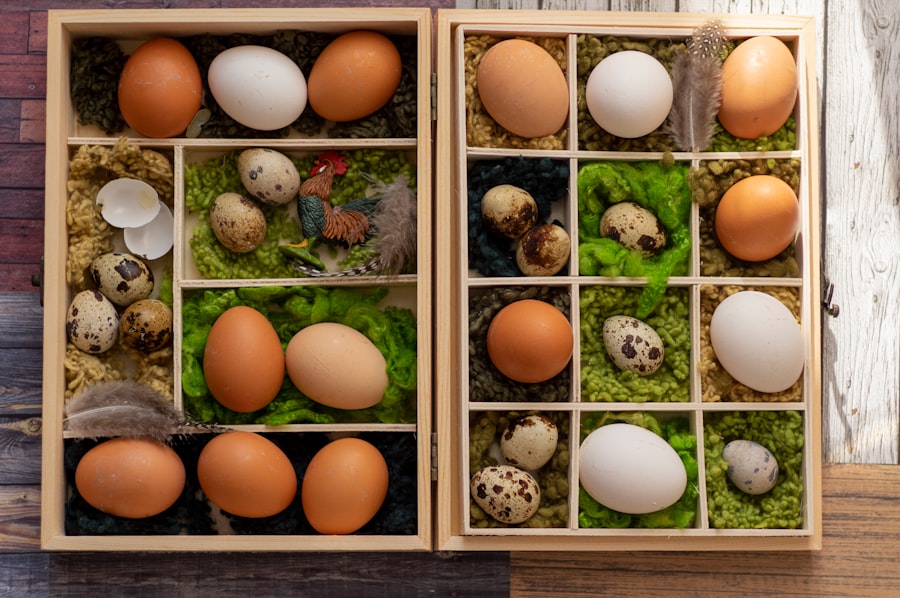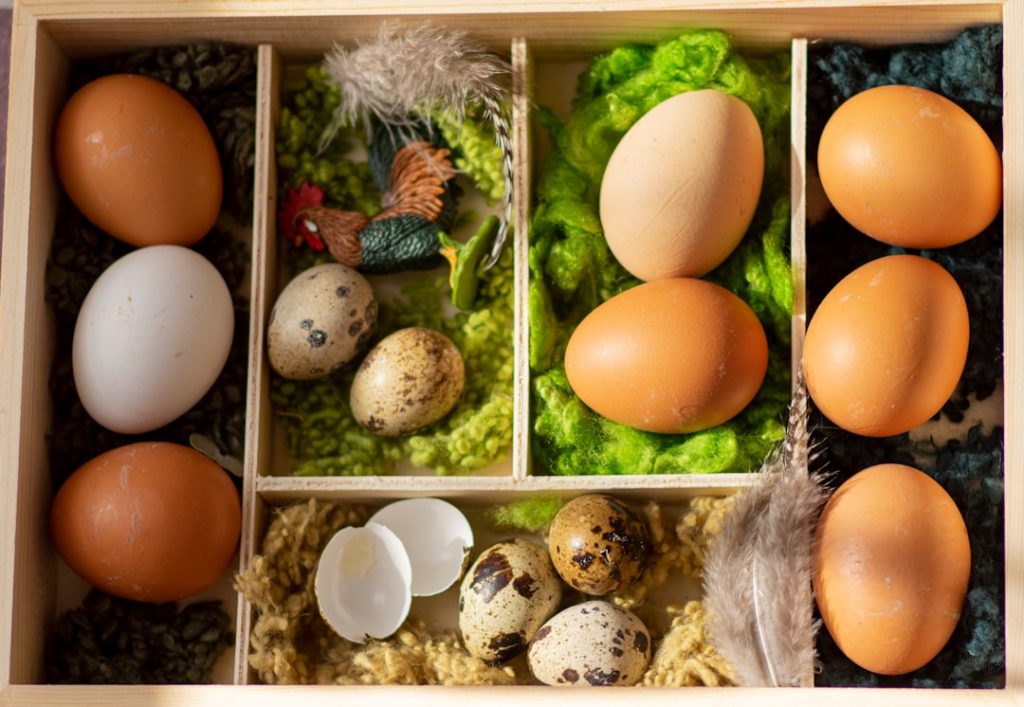When selecting a chicken breed for a backyard flock, several factors should be considered. Climate is a crucial consideration, as some breeds are better adapted to cold weather, while others thrive in warmer conditions. The intended purpose of the flock is also important; certain breeds are known for their egg-laying capabilities, while others are valued for meat production.
Temperament is another factor to consider, as some breeds are more docile and friendly, while others can be more aggressive. Available space is also relevant, as some breeds are better suited to confined areas, while others require more room to roam. After evaluating these factors, specific breeds can be researched to find those that meet the desired criteria.
Popular choices for backyard flocks include Rhode Island Red, Plymouth Rock, and Australorp, which are known for their hardiness, good egg production, and friendly dispositions. For colder climates, breeds like Orpington or Wyandotte may be suitable, while Leghorn or Sussex might be appropriate for warmer regions. The ideal breed will depend on individual needs and preferences, so thorough research is essential for making an informed decision.
Table of Contents
Key Takeaways
- When choosing a breed, consider factors such as egg production, temperament, and climate adaptability
- A suitable coop should provide enough space, protection from predators, and proper ventilation
- Feeding and watering should be done with high-quality feed and clean water, and access should be provided at all times
- Proper care and maintenance includes regular cleaning, monitoring for signs of illness, and providing necessary supplements
- Understanding chicken behavior and communication can help in identifying stress or health issues
- Common health issues include parasites, respiratory infections, and egg binding, and should be addressed promptly
- Tips for raising happy and healthy chickens include providing enrichment, socialization, and regular health check-ups
Setting up a suitable coop
Size Matters
When it comes to setting up a coop for your backyard chickens, the first thing to consider is the size of the coop. Chickens need plenty of space to move around and stretch their wings, so make sure your coop is large enough to accommodate your flock comfortably.
Essential Features
In addition to size, there are several essential features to include in your coop. These include good ventilation to prevent moisture buildup and ensure good air quality, roosting bars for your chickens to perch on at night, and nesting boxes for them to lay their eggs in.
Choosing the Right Materials
When it comes to the materials for your coop, there are several options to consider. Many backyard chicken keepers opt for wooden coops, as they provide good insulation and protection from the elements. However, metal coops are also a popular choice, as they are durable and easy to clean. Whichever material you choose, make sure it’s predator-proof to keep your chickens safe from harm.
Bedding and Comfort
Finally, don’t forget to provide bedding for your coop to keep your chickens comfortable and help control odors. Pine shavings and straw are popular choices for coop bedding, but there are many options available depending on your preferences and budget.
Feeding and watering

Feeding and watering your backyard flock is an essential part of keeping them healthy and happy. When it comes to feeding, it’s important to provide your chickens with a balanced diet that meets all of their nutritional needs. A good quality commercial feed is a great starting point, but you can also supplement their diet with kitchen scraps, fruits, vegetables, and even insects.
Just be sure to avoid feeding them anything that’s toxic to chickens, such as avocado or chocolate. In addition to food, your chickens will also need access to clean, fresh water at all times. Make sure they have access to water both inside their coop and in their outdoor run, and check their waterers regularly to ensure they’re clean and functioning properly.
In colder weather, you may need to take extra precautions to prevent their water from freezing, such as using heated waterers or changing out their water more frequently. By providing your chickens with a nutritious diet and access to clean water, you’ll help them stay healthy and thrive in your backyard.
Providing proper care and maintenance
Proper care and maintenance are essential for keeping your backyard chickens healthy and happy. One of the most important aspects of care is keeping their coop clean and well-maintained. Regularly cleaning out their bedding, removing droppings, and disinfecting their coop will help prevent disease and keep your chickens comfortable.
Additionally, be sure to regularly check for signs of pests or predators and take steps to protect your flock from harm. Another important aspect of care is monitoring your chickens’ health and addressing any issues promptly. Keep an eye out for signs of illness or injury, such as lethargy, loss of appetite, or abnormal behavior, and consult with a veterinarian if you have any concerns.
Additionally, be sure to provide regular grooming and maintenance for your chickens, such as trimming their nails and beaks as needed. Finally, don’t forget about the importance of socialization and enrichment for your flock. Spending time with your chickens, providing them with opportunities for exercise and mental stimulation, and offering them treats can all contribute to their overall well-being.
By providing proper care and maintenance for your backyard flock, you’ll help ensure that they lead happy and healthy lives in your care.
Understanding chicken behavior and communication
Understanding chicken behavior and communication is key to raising happy and healthy chickens in your backyard. Chickens are social animals with complex social structures and communication systems. They use a variety of vocalizations, body language, and behaviors to communicate with each other and with their human caretakers.
For example, chickens use different vocalizations to express a range of emotions and needs. They may cluck softly when they’re content or excited, squawk loudly when they’re alarmed or distressed, or make a rhythmic “egg song” after laying an egg. Additionally, chickens use body language to communicate with each other and establish social hierarchies within their flock.
They may puff up their feathers and strut around to assert dominance or crouch down submissively to show deference. By observing and learning about chicken behavior and communication, you can better understand the needs and preferences of your flock. This knowledge can help you identify signs of stress or illness in your chickens, anticipate their behavior in different situations, and provide them with appropriate care and enrichment.
Ultimately, understanding chicken behavior and communication is essential for building a strong bond with your flock and creating a harmonious environment for them to thrive.
Dealing with common health issues

Like any animals, chickens are susceptible to a variety of health issues that can impact their well-being. It’s important for backyard chicken keepers to be aware of common health problems that can affect their flock so they can take proactive measures to prevent illness and address any issues that arise. One common health issue in chickens is parasites such as mites, lice, and worms.
These pests can cause discomfort, irritation, and even anemia in chickens if left untreated. Regularly inspecting your flock for signs of parasites and implementing a parasite control program can help keep your chickens healthy and comfortable. Another common health issue in chickens is respiratory infections.
Chickens can be susceptible to respiratory illnesses such as infectious bronchitis or mycoplasma gallisepticum, especially in crowded or poorly ventilated conditions. Keeping your coop clean and well-ventilated, minimizing stress on your flock, and practicing good biosecurity measures can help prevent respiratory infections from spreading. Additionally, it’s important to be aware of other potential health issues in chickens such as egg binding, bumblefoot, or nutritional deficiencies.
By staying informed about common health issues in chickens and working with a veterinarian when needed, you can help ensure that your flock stays healthy and happy in your care.
Tips for raising happy and healthy chickens
Raising happy and healthy chickens in your backyard is a rewarding experience that requires attention to their physical, mental, and emotional well-being. Here are some tips for creating an environment where your flock can thrive: – Provide plenty of space: Chickens need space to move around, stretch their wings, dust bathe, and establish social hierarchies within their flock. Make sure your coop and outdoor run are large enough to accommodate your flock comfortably.
– Offer enrichment: Chickens are curious animals that benefit from mental stimulation and opportunities for natural behaviors like scratching, pecking, perching, and foraging. Provide them with toys, treats, perches, dust bathing areas, and access to fresh grass or vegetation. – Practice good biosecurity: Minimize the risk of disease by practicing good biosecurity measures such as quarantining new birds before introducing them to your flock, keeping wild birds away from your chickens’ feed and water sources, disinfecting equipment regularly, and preventing visitors from bringing diseases onto your property.
– Monitor their health: Keep an eye on your chickens’ overall health by observing their behavior, checking for signs of illness or injury regularly, providing them with a balanced diet and clean water, and seeking veterinary care when needed. – Build a strong bond: Spend time with your chickens regularly to build trust and create a strong bond with them. This can help reduce stress in your flock, make handling easier when necessary, and provide opportunities for socialization.
By following these tips and providing attentive care for your backyard flock, you can create an environment where your chickens can lead happy and healthy lives under your care.
If you’re interested in learning more about how to keep chickens, you should check out this article on Poultry Wizard. They have a wealth of information on breeding chickens, including how long it takes for chicken eggs to hatch naturally. They also have resources on breeding ducks, such as when duck mating season occurs. It’s a great resource for anyone looking to raise poultry.
FAQs
What are some common breeds of chickens?
Some common breeds of chickens include the Rhode Island Red, Leghorn, Plymouth Rock, and Sussex.
What do chickens eat?
Chickens typically eat a diet of grains, seeds, insects, and vegetation. Commercial chicken feed is also available and provides the necessary nutrients for their health.
How much space do chickens need?
Chickens need at least 2-3 square feet of coop space per bird, and 8-10 square feet of outdoor space per bird for free-ranging.
What are some common health issues for chickens?
Common health issues for chickens include respiratory infections, parasites, and egg-laying problems. It’s important to regularly monitor the health of your chickens and seek veterinary care when needed.
How do you protect chickens from predators?
To protect chickens from predators, it’s important to secure their coop with sturdy fencing, lockable doors, and predator-proof latches. Additionally, using motion-activated lights or sound devices can help deter predators.
How do you keep chickens warm in the winter?
To keep chickens warm in the winter, provide them with a draft-free and insulated coop. Adding extra bedding, heat lamps, and ensuring access to fresh water can also help keep chickens comfortable during cold weather.
Meet Walter, the feathered-friend fanatic of Florida! Nestled in the sunshine state, Walter struts through life with his feathered companions, clucking his way to happiness. With a coop that’s fancier than a five-star hotel, he’s the Don Juan of the chicken world. When he’s not teaching his hens to do the cha-cha, you’ll find him in a heated debate with his prized rooster, Sir Clucks-a-Lot. Walter’s poultry passion is no yolk; he’s the sunny-side-up guy you never knew you needed in your flock of friends!







